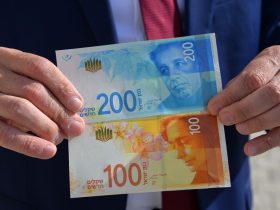The European Bank for Reconstruction and Development (EBRD) is intensifying its cooperation with financial institutions in Ukraine and Serbia to bolster small and medium-sized enterprises (SMEs) in both countries.
On Friday, the EBRD expanded its partnership with ProCredit Bank Ukraine by issuing a €7.5 million unfunded risk-sharing instrument. This instrument will cover up to 50% of the credit risk of €30 million in newly originated financing to private businesses in Ukraine from ProCredit Bank, subject to a portfolio cap of 50%.
Simultaneously, the EBRD is stepping up its collaboration with Banca Intesa Belgrade by extending a new €25 million credit line. The funds will finance investments by local SMEs in green technologies and other areas, enabling them to comply with EU directives and other international standards.
The Serbian SMEs will also enjoy grant incentives worth up to 15% of the loan amount, funded by Luxembourg and Norway, with other donors expected to join. A program consultant will aid these firms in preparing and implementing their investment plans.
A significant part of the credit line extends from the EBRD’s SME Reboot Program which aids small firms’ recovery from the pandemic-induced downturn. At least 70% of the loan will fund SMEs’ investments in green technologies and upgrades to enhance energy efficiency and reduce carbon footprints.
Darko Popović, President of the Executive Board of Banca Intesa, emphasized that the project builds on the previous EBRD credit line, which aimed at achieving the Paris Agreement goals. He said, “By empowering SMEs in Serbia through our long-term cooperation with the EBRD, we continue to support the creation of a resilient and sustainable economy in our country.”
Banca Intesa Belgrade, a member of the Intesa Sanpaolo (OTC:) Group and a long-standing partner of the EBRD, is one of the leading banks in Serbia providing retail and corporate banking services.
The EBRD, a leading institutional investor in Serbia, has invested over €8 billion in the country, with more than 70% of these in the private sector. The Bank focuses on SME support, the improvement of public utility services, and the overall transition to a green economy.
This article was generated with the support of AI and reviewed by an editor. For more information see our T&C.
Read the full article here









Leave a Reply